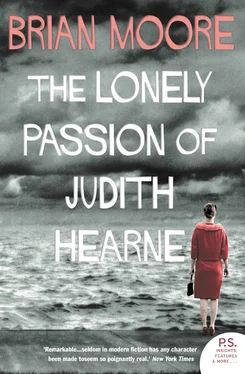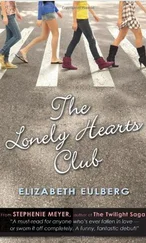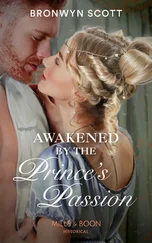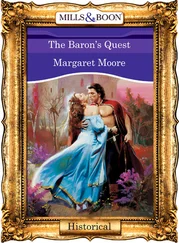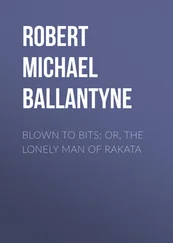He came into the room, late at night, tired after a day at work in his hotel. He took off his jacket and hung it up. He put his dressing-gown on and sat down in his armchair and she went to him prettily, sat on his knee while he told her how things had gone that day. And he kissed her. Or, enraged about some silly thing she had done, he struck out with his great fist and sent her reeling, the brute. But, contrite afterwards, he sank to his knees and begged forgiveness.
Judy Hearne, she said, you’ve got to stop right this minute. Imagine romancing about every man that comes along.
Her busy hands flew, unpacking the linen sheets, putting them away in the dresser drawer. But she paused in the centre of the room. He noticed me. He was attracted. The first in ages. Well, that’s only because I’ve been keeping myself to myself too much. Go out and meet new people and you’ll see, she told her mirror face. And the face in the mirror told it back to her, agreeing.
Why did he come home to Ireland? A visit maybe, to see his family. But he doesn’t seem on very good terms with his sister. He’ll go back to New York, of course, back to his hotel. Mr and Mrs James Madden, of New York, sailed from Southampton yesterday in the Queen Mary. Mr Madden is a prominent New York hotelier and his bride is the former Judith Hearne, only daughter of the late Mr and Mrs Charles B. Hearne, of Ballymena. The honeymoon? Niagara Falls, isn’t that the place Americans go? Or perhaps Paris, before we sail.
But the mirror face grew stern and cross. You hardly know him, it said. And he’s common, really he is, with that ring and that bright flashy tie. O, no he’s not, she said. Don’t be provincial. Americans dress differently, that’s all.
A church bell tolled far away and she prayed. The library book would be due Wednesday, wasn’t it? Do you know, I’m awfully uninformed about America, when I come to think of it. Outside, the grey morning light held, the rain still threatened. I could go down to the Carnegie library and read up on it. Especially New York. And then tomorrow at breakfast, I’d have questions to ask.
Maybe, she said, hurrying towards the wardrobe to pick out her red raincoat, maybe he’ll be in the hall and I’ll meet him and we might walk downtown together. I must hurry because if he’s going out, it should be soon.
But the hall was a dark, damp place with no sign of anyone in it. Mary had cleared the dining-room, restoring the chairs to their original anchorage around the table. The curtained door to Mrs Henry Rice’s kitchen was shut and the house was silent, a house in mid-morning when all the world is out at work.
She went out, dejected, and walked along Camden Street with her head full of black thoughts. Why had she bothered to come out at all? The library and looking up America was only nonsense, when all was said and done. Besides going out only made you peckish and it was such a temptation to have a regular restaurant lunch. Well, you won’t. You’ll fast, that’s what you’ll do.
At the library on Royal Avenue the man wasn’t helpful. But she made him climb the ladder twice to get her three books, one a picture book of New York and two books on America in general. She carried them to one of the slanting reading tables and sat down, slipping her neutral coloured glasses from her bag. Then amid the old men and students in the muted noises induced by ‘Silence’ signs, she read about America, Land of the Free, the New Colossus. All very heavy going, economic tables and business articles. She turned to the picture book and there was a picture of Times Square, and (gracious!) the hotels were immense, five times as big as the Grand Central, the Royal Avenue, or even the Gresham, in Dublin. O, he couldn’t own one of those. And what was his job? There were so many jobs in a hotel. Maybe an assistant manager. Surely in the administration somewhere. Otherwise, he would have said a cook, or a waiter, or whatever. O, certainly nothing like that.
She read and read because she could feel the little crab of hunger nipping away at her insides. She tried to forget him, the expensive little rascal, but he just nipped harder. Finally, when the clock on the wall said three, she decided that just this once she’d have to give in to him, despite her resolution. She gave the books back and went to a milk bar at Castle Junction and treated herself to a glass of milk and a raspberry tart. Afterwards, she looked at the shop windows for a while. But they hadn’t changed since last week, so this was dull sport.
As she was looking in the window at Robb’s, a little boy came running out, dragging his school satchel, his grey wool stockings down about his heels.
Tommy Mullen! She hurried over to him, forcing him to stop. His mother was a friend of the Breens, before the Breens moved to Dublin. Tommy had taken piano lessons last year. She saw the keyboard, his rather dirty hands, his wandering inattention, his fits of sulks and rages. No talent. His mother had stopped the lessons.
‘Well, if it isn’t little Tommy Mullen. And how are we getting along?’
‘Lo, Miss Hearne,’ he said, turning his cold-cheeked little face away from her kiss.
‘Well, and how’s my boy? My, we’re getting big. Too big to kiss, I suppose. I’m sure we’ve forgotten all our piano lessons now.’
He looked indignant. ‘No. I’ve got a new teacher. A man. Mr Harrington is his name.’
‘O, is that so?’ she said bleakly. ‘Well, isn’t that nice. I hope you are practising hard, eh, Tommy?’
‘Yes, Miss Hearne.’ He looked around, inattentive. ‘There’s the bus,’ he yelled. ‘Bye, bye.’ And ran off in the direction of the Albert Memorial.
A man. Another teacher. She walked down Cornmarket slowly, feeling the shaking start inside of her. No wonder his mother was so cool, nodding from the other side of the street when I saw her. Well, it wasn’t because I charged too much, goodness knows. Could I have said anything that time I stayed for tea? No, of course not. I never said he had no talent. O, anyway.
Still, one less pupil, that’s what it amounts to. Or two less. Because she didn’t want Tommy to keep on but she said she’d get in touch with me about the little girl. She won’t now. Harrington, who’s he? Well, the nerve of some people. After all the time I slaved away with that boy. After all the extra half-hours without any additional charge. I don’t know what’s happened to my lucky star these past months. What’s happened to me, anyway? You’d think I had the plague, or something. That’s four pupils gone in the last six months. Only little Meg Brannon now and goodness knows how long that will last. As much ear for music as a heathen chinee.
The clock in Cornmarket said four. She walked down Ann Street with its jumble of cheap shops, its old shawled women and its loud crying fruit vendors. I wonder will the Technical School take me on for the embroidery class next term? Mr Heron said he hoped he would be able. But nobody does embroidery any more, that’s the truth of it. They have to have enough to make a class. And you can’t sell it. Ruin your eyes at piece rates.
She came out near the docks and turned hastily back towards the centre of the city. The docks were no place for a woman to be wandering about, in among all those rough pubs and the Salvation Army. At Castle Junction the clock said half-past four. Go home. She walked back towards Camden Street. It began to drizzle but she was thinking about money, so she paid it no heed.
Her Aunt D’Arcy had never discussed money. A lady does not discuss her private affairs, she used to say. And the D’Arcys never had to look where their next penny was coming from. There had been the house on the Lisburn Road. She had thought that it would fetch quite a bit. And then her aunt had said that Judy wouldn’t have to worry, there would be plenty until the right man came along and even if he didn’t. That was a long time ago, she said that. Ten years. More, thirteen, if I’m to be honest about it, Miss Hearne thought. First, there was the mortgage on the house. And then the money we owed Dan Breen. And the annuity she left me, it was small then and nobody in the whole length and breadth of Ireland could live on a hundred pounds a year nowadays.
Читать дальше
